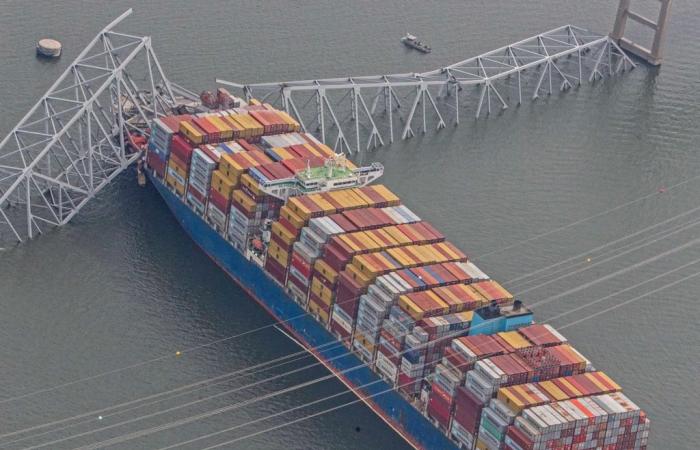A container ship lost power and crashed into a large bridge in Baltimore early yesterday morning, March 26, causing a construction team and several vehicles to fall into the river. Rescue teams removed two people, but six others were presumed dead. The collapse of the bridge closed the port of Baltimore, an important hub, which ranks first in the United States in terms of the volume of cars and trucks it handles.
The dramatic destruction of the bridge closed the port to all maritime traffic, which last year accounted for more than 52 million tons of foreign cargo, worth about $80 billion, according to a recent statement from the Governor’s office. of Maryland, Wes Moore. The accident thus disrupted the operations of one of the busiest ports in the country, and it is likely that the consequences of this disruption will be felt for weeks by companies that transport goods in and out of the country, and ultimately also by consumers. The disruption will be especially noticeable for automakers and coal producers, for whom Baltimore has become one of the most vital shipping destinations in the United States.
As authorities began investigating why a nearly 1,000-foot cargo ship crashed into the Francis Scott Key Bridge in the middle of the night, companies that transport goods to suppliers and stores scrambled to get trucks to the other East Coast ports that received goods diverted from Baltimore. The ships were stopped in other places, not knowing where and when to dock.
The closure of the Port of Baltimore is the latest blow to global supply chains, which have been strained by months-long crises at the Panama Canal, which had to reduce traffic due to low water levels, and at the of Suez, which shipping companies are avoiding due to Houthi attacks on ships in the Red Sea.
The automotive industry is one that is now facing new supply difficulties. Last year, 570,000 vehicles were imported through Baltimore, equivalent to nearly a quarter of the current new car inventory in the United States. It is worth remembering that in 1963, Baltimore was the port of entry for the first Volkswagen Beetle, according to the website Mayland.gov.
The incident is yet another reminder of the enormous vulnerability of the supply chains that transport consumer products and goods around the world. The size and repercussions of the accident will depend on the time it takes to reopen the navigation channels in the port of Baltimore which, it should be noted, is not one of the main ports for container ships, so other ports can probably absorb the traffic who was heading to Baltimore.
In the ranking, this is the ninth North American port in terms of foreign cargo handled and the value of imported merchandise and is directly responsible for more than 15,000 jobs, supporting almost 140,000 others.






